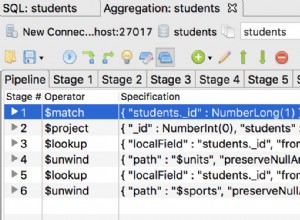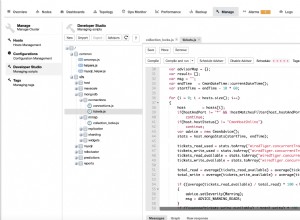In genere includo un file di utilità di progetto che contiene una serie di queste cose, solo per semplificare. Funziona come uno pseudo globale, ma senza molti dei soliti problemi che i globali comportano.
Ad esempio,
projectUtils.js
module.exports = {
initialize: function(next){
// initialization actions, there can be many of these
this.initializeDB(next);
},
initializeDb: function(next){
mongoClient.open(function(err, mongoClient) {
if(err) return next(err);
module.exports.db = mongoClient.db(DB);
next();
});
}
}
app.js
var projectUtils = require('projectUtils');
// (snip)
projectUtils.initialize(function(err) {
if(err) throw err; // bad DB initialization
// After this point and inside any of your routes,
// projectUtils.db is available for use.
app.listen(port);
}
Utilizzando una funzione asincrona initialize(), puoi essere sicuro che tutte le connessioni al database, i file I/O, ecc., vengano eseguite prima di avviare il server.




